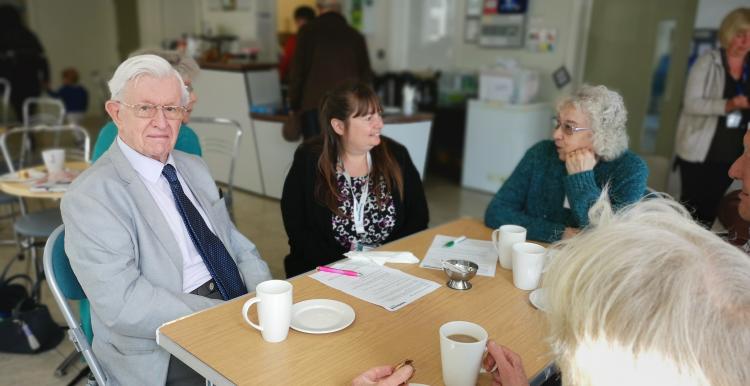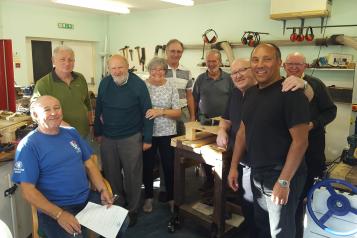Help those with dementia lead better lives, this Dementia Action Week

One in three of us born in the UK today will go on to develop dementia in our lifetime, and there will be one million people living with dementia by 2025, making dementia care one of the greatest challenges facing our society.
According to Alzheimer’s Research UK, there are around 820,000 people living with dementia in the UK. The majority are older people, but it is possible for younger people to have dementia, and dementias that are diagnosed before the age of 65 are known as 'early-onset'.
In Wiltshire, there are estimated to be just over 7,000 people living with dementia.
What is dementia?
The word ‘dementia’ describes a set of symptoms that may include memory loss and difficulties with thinking, problem-solving or language.
Dementia is caused by diseases which damage brain cells and interfere with the normal workings of the brain.
Everyone will experience dementia differently, depending on the cause, on which parts of the brain are affected, and their own personality and circumstances.
What types of dementia are there?
-
Alzheimer’s disease. This is the most common type of dementia. Alzheimer’s is a progressive condition which means that symptoms get worse over time. First signs are usually minor memory problems which can later lead to confusion and disorientation, problems with speech and language, personality changes such as becoming more aggressive or suspicious, delusions and anxiety.
- Vascular dementia. Another common type of dementia, caused by reduced blood flow to the brain. Symptoms, which can start suddenly or build over time, include slowness of thought and problems with concentration, difficulty walking and keeping balance.
- Frontotemporal dementia. An uncommon type of dementia that causes problems with behaviour and language. While dementia mostly affects people over 65, this form of dementia tends to start at a younger age, with most cases diagnosed in people aged 45-65.
- Dementia with Lewy bodies. This rare form of dementia involves tiny abnormal structures (Lewy bodies) forming inside brain cells, which disrupt the chemistry of the brain. People with this type of dementia may experience hallucinations, confusion or sleepiness, slow movement and tremors, fainting and falls, and problems with understanding, memory and judgement.
- Mixed dementia. This is when someone has more than one type of dementia, and so will have a mixture of the symptoms. Many people with vascular dementia also have Alzheimer’s disease.
Getting a diagnosis
Although there is currently no cure for dementia, an early diagnosis can often mean its progress can be slowed down.
A diagnosis helps people with dementia get the right treatment and support and help them, and those close to them, prepare for the future.
With the right treatment and support, many people are able to lead full and active lives.
Read more about living well with dementia
Get support
Find out more about support in Wiltshire on the Alzheimer’s Support website.
How can I support Dementia Action Week?
#CureTheCareSystem
This Dementia Action Week, Alzheimer’s Society is calling on the Government to cure the care system by asking it to consider not just funding, but also improving the quality of care that people receive.
Become a dementia friend
A Dementia Friend is someone that learns about dementia so they can help their community. They help by taking actions big and small – such as visiting someone they know with dementia, or wearing a badge to raise awareness.

